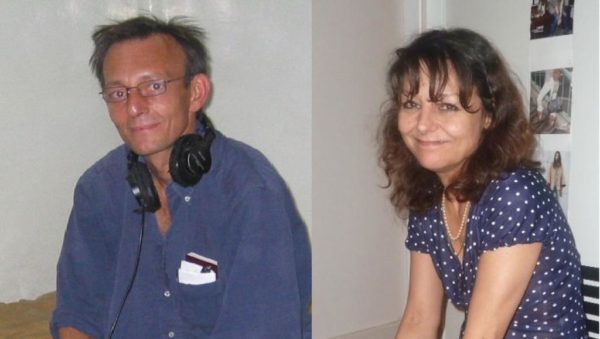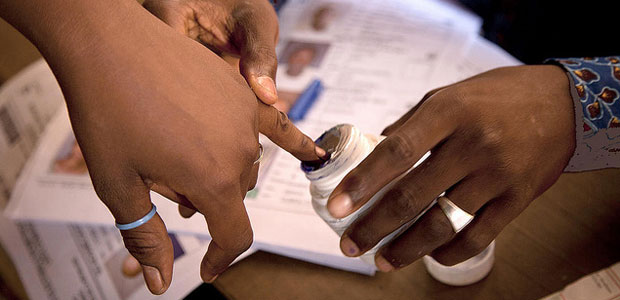This statement was originally published on mfwa.org on July 16, 2018.
By Edzodzi Kokou Ahiadou, Programme Associate, Media Foundation for West Africa
On July 29, 2018, the people of Mali will go to the polls to elect their highest public official to preside over the destiny of the country for a five-year term and to try to find solutions to the many socio-economic development issues of the country. The process comes up against some grim security challenges linked to the growing activities of extremist groups in the north and centre of the country.
The climate of insecurity does not only pose personal and public safety concerns, but also has implications for journalists’ safety. Media professionals are already exposed to the threat of physical harm, leading to widespread self-censorship.
The safety of journalists’ situation could therefore further deteriorate during the electoral period if no concrete measures are taken to ensure security and protection for the media. This is crucial in view of the vital role the media is expected to play in ensuring credible, peaceful and successful polls.
Once stable, peaceful and media-friendly, Mali plunged into a political crisis in early 2012 leading to a significant deterioration of human rights and press freedom conditions in the country.
During the crisis, several media organisations were vandalised or closed down mainly by rebel groups. Also, several journalists suffered various forms of harassment and physical attacks.

In 2013 when many thought the situation had improved, two French journalists, Ghislaine Dupont and Claude Verlon of Radio France Internationale, were kidnapped and killed in Kidal by an armed group. The perpetrators of this crime have not yet been apprehended, let alone punished.
In 2015, an unidentified gunman killed Joel Dicko, a journalist with Radio Tahint, a Christian radio station opened in the wake of the 2012 insurgency in Northern Mali to propagate peace and reconciliation. Dicko’s killer remains unknown and it is unclear what steps the police have taken to ensure justice is served.
On July 25, 2017, a blogger, Modou Kante, popularly called Marshal Modou, survived an assassination attempt after an unknown assailant shot him in the chest.
In February 2016, a reporter with Sphinx newspaper, Birama Toure, went missing, with investigations into his disappearance making no headway. According to reports, the media fraternity in Mali and Toure’s family fear that the journalist might have been disappeared.
On April 13, 2018, the police physically attacked Mamadou Sacko of the Pretoire newspaper. Mamadou was assaulted for filming the demolition of a garage by the police.
Doumba Dembele, a journalist with Radio Kledu, was similarly brutalised and publicly humiliated by guards of President Ibrahim Boubacar Keita on April 25, 2018. The incident occurred when Dembele was covering the inauguration of an interchange by the President.
Apart from violations on journalists, there have also been violations of online freedom of expression rights. The authorities have shut the internet and disrupted access to social networks in the past two years.
The first incident of network disruption occurred on June 14, 2017 when the opposition political parties organised a demonstration to oppose a proposed controversial referendum to give expanded powers to the president, Ibrahim Boubacar Keita.
On August 17, 2016, all the social networks in Mali were disrupted following the clash between the police and supporters of journalist and activist Mohammed Bathily, popularly known as Ras Bath. The clash, which resulted in the death of one person, followed the arrest of the popular radio presenter and reports on social media that he was being arraigned in court for criticising a religious leader.
With these incidents, it is feared that the coming elections could see a possible disruption to social media and or network/internet shutdown.
The above are hardly the ideal press freedom and freedom of expression conditions for the conduct of successful elections in any country. And for Mali, which has been grappling with security challenges in recent years, the situation is particularly dire.
It is therefore important for the media, civil society, the security agencies and other relevant state institutions to recognise this threat and work together to ensure a conducive environment for the upcoming elections.
There can be no credible elections without a free, vibrant and pluralistic media. The citizens rely on the media for information that inform their choices, while the political actors need the media’s platform to convey their electoral message to the masses.
Social media is also playing an increasingly critical role in enhancing citizens’ participation in the governance process. The authorities must, therefore, commit to keeping the internet on, not only during the elections, but at all times.
It is also important for all citizens to demonstrate a high sense of patriotism, civic responsibility and commitment to the peace and unity of Mali before, during and after the elections.




